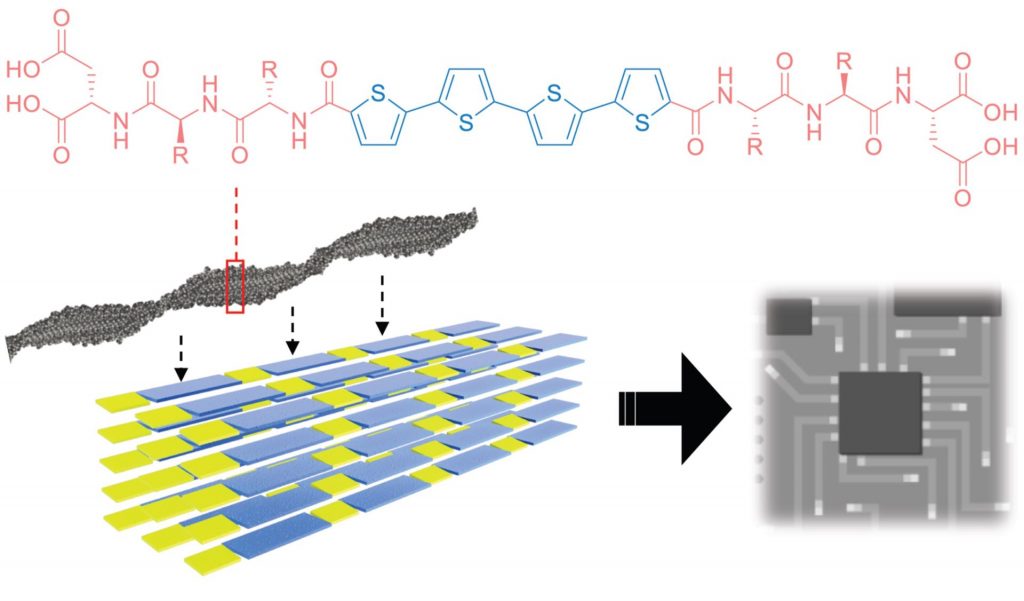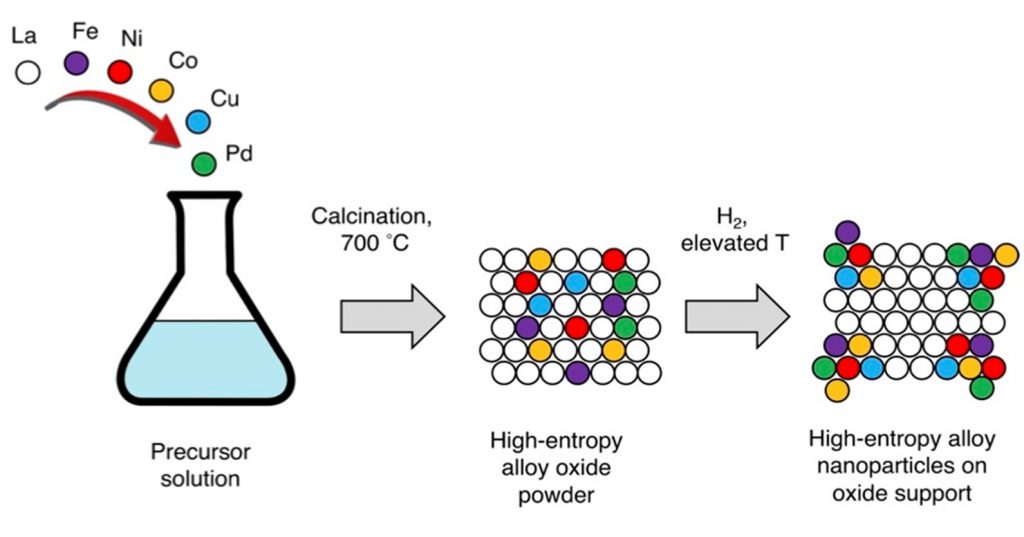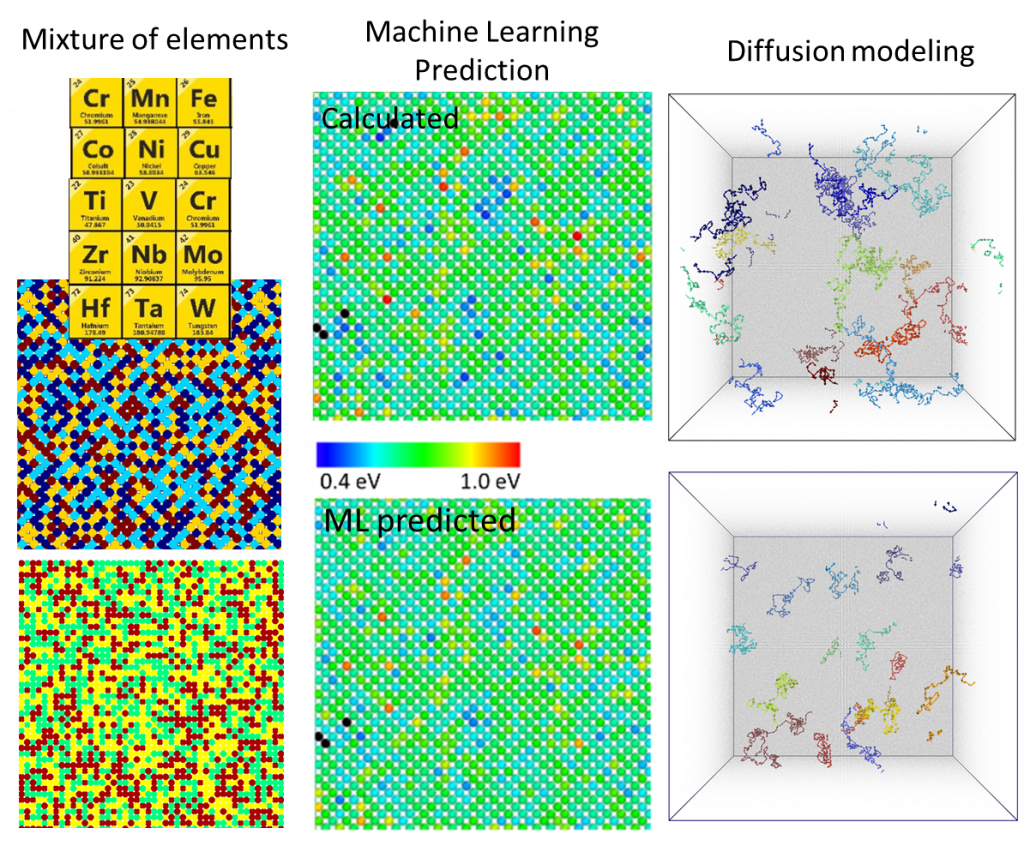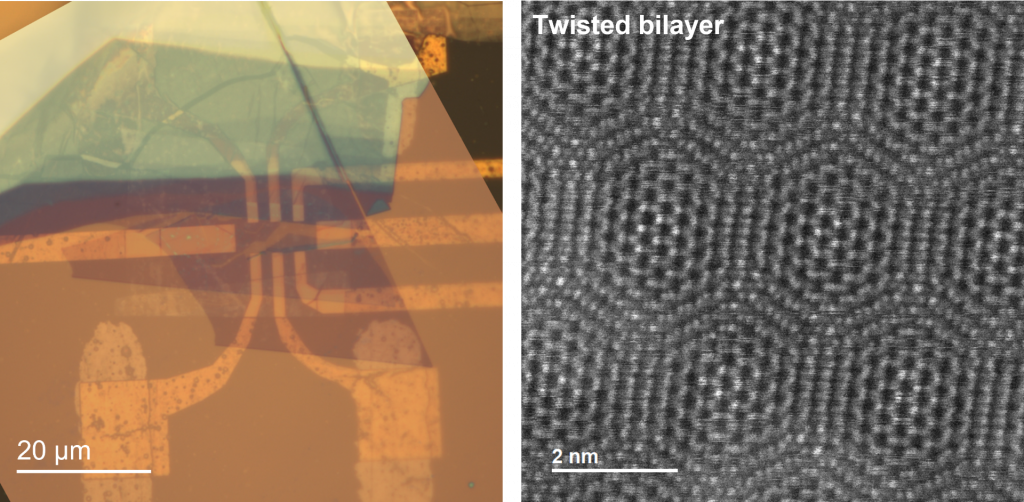2023 UCI MRSEC Seed Funding Program
The Center for Complex and Active Materials (CCAM) is a National Science Foundation Materials Research Science and Engineering Center (MRSEC) located at the University of California, Irvine (UCI). We are currently seeking proposals for seed projects from small teams that can establish new research directions, leading to the formation of new Interdisciplinary Research Groups (IRGs). CCAM’s primary mission is to advance foundational knowledge towards the development of novel materials that offer unique functionalities and exceptional performance. Currently, the CCAM team is comprised of two existing IRGs: 1) developing fundamental interfacial science for hard materials with complex chemical compositions and exceptional physical properties, including the ability to perform in extreme environments, and 2) creating dynamically responsive soft materials that mimic complex biological processes and functions.
The Seed Funding Program for 2023 seeks to encourage the development of new and inventive research directions that have the potential to lead to the formation of a new IRG. IRGs are typically high-risk projects that create new research directions in materials science and must show the potential for leadership in a new research area rather than extensions of existing research. Moreover, they are not likely funded in areas that are already well represented by existing MRSECs (https://mrsec.org/centers) or are heavily funded by other divisions or agencies.
Our goal is to support one or two proposals with multiple investigators this year, with a total budget of up to $200k for a 12-month funding period. Of particular interest are proposals that are unique, innovative, and have the potential to significantly contribute to national competitiveness. To ensure the success of funded projects, investigators should develop well-organized team structures that leverage the strengths of each member and promote effective communication and collaboration.
Eligibility
UCI faculty members and NSF-qualified Principal Investigators at higher education institutes in southern California may apply. We look forward to receiving innovative and compelling proposals from researchers across a variety of disciplines, and to supporting the development of new and exciting research directions that may lead to the formation of a new IRG.
Guiding Principles and Funding Priorities
Applications for seed projects will be evaluated based on the quality and novelty of the proposed research in materials science and engineering and the track record of the PIs. High priority for selection will be the potential of the proposed research to lead to the formation of a new IRG. This will be assessed based on factors such as the alignment with the interests of the NSF-DMR program, the scope of the project, national competitiveness, and potential core internal and external team collaborators.
Applications
The full application packet in a single PDF file includes the following items:
- Cover Page including the project title; Investigators’ names and contact information; and the administering unit and financial management contact for this project, if awarded.
- Research Narrative (4 pages, references do not count toward this page limit) should address the following aspects:
- Vision and Goals – Describe the overarching vision and specific goals of the proposed research. Clearly articulate how the proposed research will advance the field of materials science and engineering and address a critical need or gap in the current knowledge. State the expected outcomes and potential impact of the proposed research.
- Approach and Methodology – Describe the approach and methodology that will be used to achieve the vision and goals of the proposed research. Provide a clear and detailed plan for conducting the research, including the experimental or theoretical methods that will be used, the data analysis techniques, and any potential challenges and limitations.
- Transformative Impact – Clearly state how the proposed research has the potential to be transformative and create new opportunities for interdisciplinary collaboration.
- The formation of a new IRG – Articulate the alignment of the proposed research with the interests of the NSF-DMR program, uniqueness of objectives and methodologies, national competitiveness, and plan of team organization.
- If you received previous seed fund, please also submit a summary of accomplishments (< 2 pages).
- Vision and Goals – Describe the overarching vision and specific goals of the proposed research. Clearly articulate how the proposed research will advance the field of materials science and engineering and address a critical need or gap in the current knowledge. State the expected outcomes and potential impact of the proposed research.
- Budget and Justification (1 page) should state the total amount requested from the Seed Funding Project. (see Use of Funds section above).
- The standard NSF two-page biographical sketches must be provided for all PIs.
- The standard NSF forms of current and pending support(s) should describe the existing support of the PIs.
Deliverables and Use of Funds
The key deliverable for seed awards is the establishment of a new materials research strength which will lead to high-quality joint publications and potential expansion into a larger program. Funds can be used to support graduate students, post-doctoral fellows, and materials/supplies. Funds may not be used for faculty salaries, equipment, or travel. Justifications for all expenditures are required.
Oversight and Reporting for Award Recipients
To ensure the success of the Seed Funding Program and promote accountability and transparency, principal investigators (PIs) are required to give brief monthly reports to the Director and Steering Committee. These reports should include updates on the scientific progress made by the team, efforts to expand collaboration, and the readiness of the IRG. Within two months of the completion of the award period, PIs are required to submit a final report detailing the accomplishments, expenditures, and deliverables achieved through the Seed Funding Program.
APPLICATION DEADLINE: May 1, 2023
The proposal should be submitted online (link) before 6 pm Pacific on May 1, 2023.
2022 Seed Program Projects
Structured strain and deformations on van der Waals (vdW) quantum material heterostructures
- Javier Sanchez-Yamagishi, Luis A. Jauregui (Physics & Astronomy) & SungWoo Nam (MAE) (UCI)
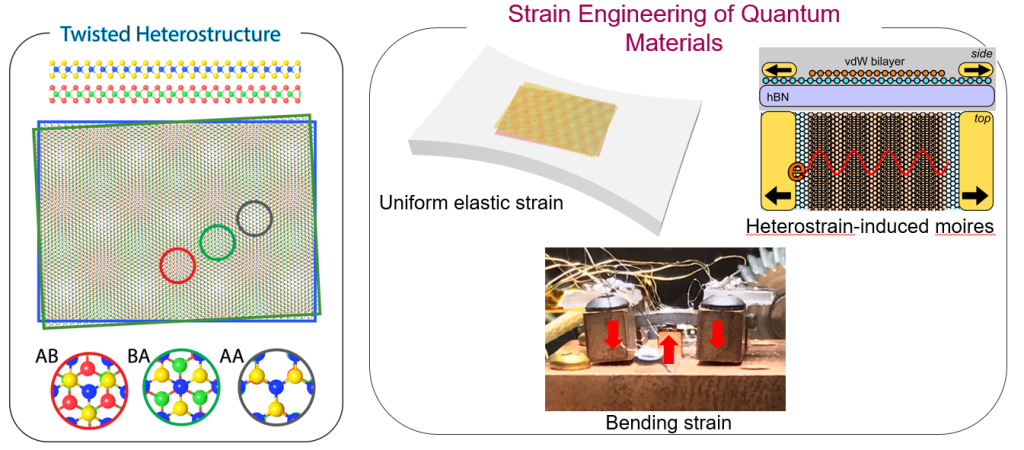
The team will study the effect of large strains and controlled plastic deformations on van der Waals (vdW) quantum material heterostructures. A unique property of vdW heterostructures is the weak interlayer bonds which support interlayer sliding as a reversible mode of plastic deformation without breaking covalent bonds. The guiding hypothesis is that these deformations can be controlled to engineer internal stacking domains and dislocations which can dynamically and reversibly modify material properties. We envision structured deformations as a new route toward programmable and reconfigurable materials at the atomic scale, which can be used as the basis of advanced microelectronics including neuromorphic computing, adaptive sensors, and other novel devices based on mechanically-coupled properties.
Surfaces (solid/vapor interfaces) control the response in nanoscale materials, giving rise to exciting size effects and emergent phenomena (e.g., metals and ceramic nanopillars exhibiting near-theoretical strength, and zirconia nanopillars displaying considerable shape memory effect). A key scientific question emerges:Can nanoscale-enabled functional phenomena in polycrystalline ceramic and metallic systems provide a platform for the design and fabrication of novel nanoarchitected active materials? In this seed project,we will investigate two different physical responses, shape memory effect and ferromagnetism, and apply advanced additive manufacturing technologies and materials characterization techniques to fabricate and characterize topologically complex nanoarchite


